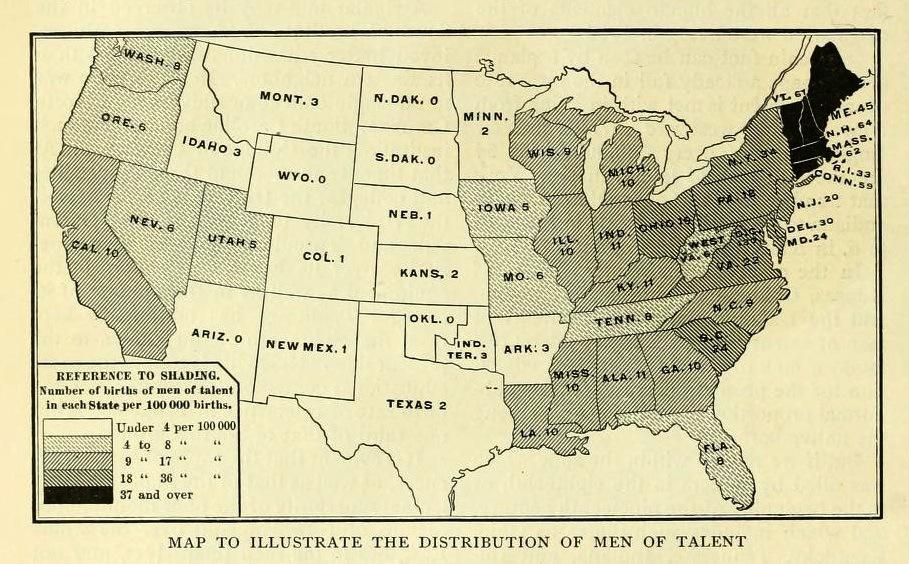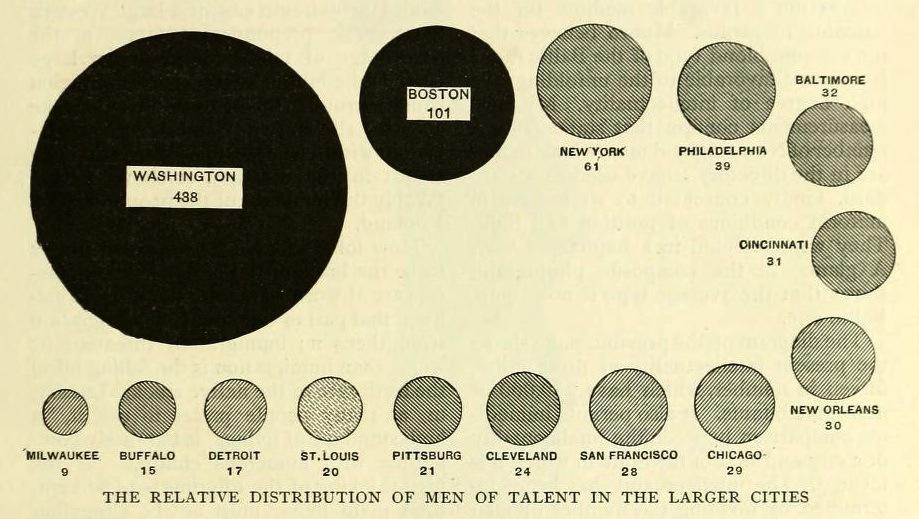In the November 1904 issue of the general-interest publication the Century magazine, writer Gustave Michaud published an article titled “The Brain of the Nation.” Using the 1901 edition of Who’s Who in America, Michaud mapped birthplaces of the men included in the directory and came up with these graphic representations of “The Distribution of Men of Talent.”
Michaud wrote that the Who’s Who likely selected for “geniuses” over “practical men,” adding: “Intellectuality is the main characteristic of the man of genius; intelligence, that of the man who succeeds at life.” The births he mapped here were of these “geniuses,” or people who had succeeded in idealistic professions: artist, scientist, author.
Michaud, who had some scientific training and often wrote for Scientific American, published an argument for eugenic selection in human reproduction in Popular Science in 1908, and the second half of this article is full of eugenic speculation. Michaud, like many of his contemporaries, was interested in figuring out ways to maximize what he perceived as the most important human characteristics.
In his discussion, the author advanced several assumptions and theories about the development of the United States. He accounted for the continued dominance of New England on this map, even after years of westward migration, by positing that the “poets, literati, artists, and lovers of intellectual culture” probably stayed on in the East, “less sensitive than other people to the attraction exerted by good and cheap land.”
Michaud’s piece is strictly an analysis of white, male America. By fiat, he left black people out altogether, arguing that “they represent only a fraction of the celebrities, but they constitute a large portion of the population of the South.” The resulting figures in Louisiana, Alabama, and Mississippi, he thought, would have been helplessly skewed, had they been included.
I first saw this item on the Tumblr of the user Nemfrog.

Internet Archive

Internet Archive